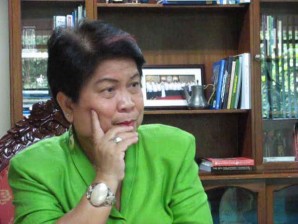Poor to get help for kids with autism
MANILA, Philippines—The Department of Social Welfare and Development (DSWD) will include autism awareness as a supplemental topic in the Family Development Sessions (FDS) for Pantawid Pamilyang Pilipino Program (4Ps) beneficiaries in April.
Social Welfare Secretary Dinky Soliman said Monday this would promote the understanding of autism, its detection and treatment among poor families, especially those who may not be aware their children have the disability.
Autism is a physiological, not a psychological, condition, according to Soliman.
It affects how a person perceives the world around him and how he reacts to it, she said.
Soliman said the DSWD and Autism Hearts Foundation (AHF) will sign a memorandum of agreement on the initiative to mark the celebration of World Autism Awareness Day (WAAD) Tuesday.
Article continues after this advertisementShe said the AHF will orient FDS resource persons composed of city and municipal 4P links and other DSWD staff on autism detection and intervention.
Article continues after this advertisementAs an agency tasked with ensuring the welfare of mentally challenged children, the DSWD also provides protective and rehabilitative services to children with autism.
As of December 2013, 28 children with autism were being served in DSWD residential care facilities such as Elsie Gaches Village in Muntinlupa City and the Center for the Handicapped in Cotabato City.
The 4Ps is one of the poverty reduction programs of the DSWD which hands out cash grants to the poorest families provided they regularly go to health centers and keep their children in school.
Beneficiaries are required to attend the FDS, a gathering of 25 to 35 parent-beneficiaries where they discuss topics that aim to strengthen and enhance their parental roles.
The DSWD on Tuesday will also participate in “Light It Up Blue” at the SM Mall of Asia in Pasay City.
“Light it Up Blue” is the culminating activity of WAAD in which nations around the world will illuminate their landmarks, offices, schools, places of worship and homes to increase awareness of autism.—Christine O. Avendaño
